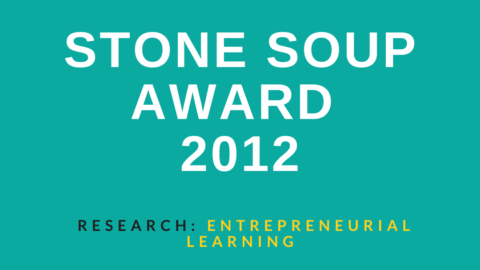“Be bold, creative and give your particular angle to social innovation”

This year Stone Soup will offer a new opportunity to researcher in the fields of social innovation and social impact to win the Stone Soup Award on Research in Social Innovation. In the first edition, Ricardo Zozimo set the bar high, winning the award for his research project on Entrepreneurial Learning.
Ricardo Zozimo is currently a Senior Research Associate for the Wave 2 Cities Growth Programme at the Institute for Entrepreneurship and Enterprise Development, Lancaster University Management School, UK. His research focuses on understanding how entrepreneurs learn and how this impacts on personal and firm performance. To serve as an inspiration to all this year aspiring applicants, Stone Soup interviewed Ricardo and asked him about his own experience.
In 2012 you received the first Award on Research in Social Innovation by Stone Soup. What was your research project about and how did it benefit from winning the Award?
My research is about how entrepreneurs learn. At the moment there is a broad consensus that entrepreneurs learn through experience. However, we know that experiential learning is a slow and sometimes complex way of learning, so my project is really about social learning and how entrepreneurs can benefit from paying more attention to what they observe. First of all the award reassured me that I was researching something which was of use to entrepreneurs. The award also served to boost my energy and commitment to my research project. Finally, one of the outcomes of the award was a webinar which impacted on the practical relevance of my academic work – it was the first time I translated my research into the practical world.
What were the main results/findings of your research project?
That entrepreneurs should supplement their experiential learning processes with broad and specific observations. Observing can provide them with fast access to effective learning practices at the personal and firm levels.
In your opinion, what key ingredients a research project should have in order to be awarded with the Stone Soup Award on Research in Social Innovation?
I believe three key ingredients are needed in a successful research project: solid theoretical roots; practical relevance and transferability. Solid theoretical roots can be assessed by how an applicant is building on present and exciting research being developed now; practical relevance can be measured by the question: how is this helping social entrepreneurs becoming better at what they do; finally transferability can be assessed by analysing how far-reaching the results from the research can be.
What will be your suggestion to this year edition’s applicants?
Be bold, creative and give your particular angle to social innovation.

